| |

|
DeLoG NEWSLETTER
No. 57 – 11/2021
|
|

|
| |
|
|
| |
Dear Reader,
welcome to issue No. 57 of the DeLoG Newsletter which showcases the Network’s most recent activities and offers an overview of current news as well as upcoming events and courses.
This issue evolves around the DeLoG Annual Meeting 2021, which took place in September under the theme of “Inclusive and Resilient Decentralisation and Local Governance Support”. The event was held virtually for the second time and brought together members and partners, other experts and academia from policy-making perspective to implementation level. The six sessions allowed reflection and exchange on measuring, enabling, mobilising and adapting for inclusive and resilient Decentralisation and Local Governance (DLG) support.
The Annual Meeting 2021 was also the start of implementing the Strategy 2021-2024, which was launched in June during a DeLoG in Dialogue event. You can learn more about the Annual Meeting 2021 in our section on DeLoG Activities.
We hope you enjoy this issue and encourage you to forward our Newsletter to others interested in staying updated on Decentralisation and Local Governance.
All the best and stay healthy!
Your DeLoG Team
Contact: [email protected] |
|
|
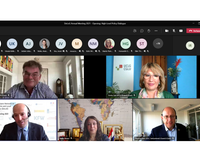
© DeLoG
|
|
16th DeLoG Annual Meeting High-Level Opening - ''For local governance, the devil is exclusion”
Over the last few years, and especially since the outbreak of COVID-19, the environment and the global agendas on DLG are under pressure from social, economic, ecological and political challenges. The provision of equal and secure access to public services is a core responsibility of Local and Regional Governments (LRGs). Clearly defined functions and mandates as well as access to finance are necessary prerequisites to enable LRGs to fully meet their responsibilities.
This High-Level Opening event set the scene for this year’s DeLoG Annual Meeting by providing room for policy dialogue among members and partners to exchange on their strategic shifts and priorities. The key question was how the support for inclusive and resilient DLG institutions is evolving in the face of current global challenges and what role partnerships and networks like DeLoG may play in future.
|
| |
|
|
| |
|
|
|
|
|
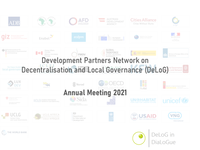
© DeLoG
|
|
Report of the DeLoG Annual Meeting 2021
The DeLoG Annual Meeting 2021 focused onhow to measure and inform, enable, mobilise and adapt for inclusive and resilient Decentralisation and Local Governance (DLG) reform efforts and institutions. During the five online sessions members and partners presented their approaches to address challenges and leverage opportunities for more inclusiveness and resilience. The objective of the sessions was to reflect on approaches to support resilience and inclusion in DLG reforms, to promote exchange on best practices in needs assessment and impact evaluation and to define key messages and identify future areas for debate and exchange within DeLoG. Please find the detailed report of the DeLoG Annual Meeting via the link:
|
| |
|
|
| |
|
|
|
|
|
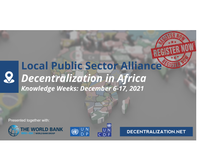
© The Local Public Sector Alliance
|
|
Webinar - ''Is Decentralisation a Road to Peace in Africa?''
As part of its global webinar series on decentralisation and local development around the World, the Local Public Sector Alliance jointly conducts a webinar on ''Decentralisation and Localisation in Sub-Saharan Africa: Is Decentralisation a Road to Peace in Africa?'' together with UNDP, VNG International and DeLoG. Several important questions will be addressed: What is the role of decentralisation and local governance in reducing or preventing conflicts? Decentralisation is often put into peace agreements but does it contribute to the stability it is thought to provide and does it promote peace? Where does this assumption come from and is there any evidence that supports the assumption? The webinar will take place on the 14th of December 2021. Registration is open.
|
| |
|
|
| |
|
|
|
|
|
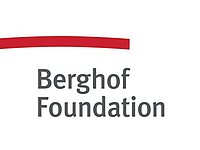
© Berghof Foundation
|
|
Berghof Foundation Becomes New Member of the DeLoG Network
We are happy to announce that the Berghof Foundation officially joined DeLoG. Its growing portfolio of work focuses on strengthening inclusive local governance and the closely related field of local dialogues and conflict mediation. Berghof Foundation is interested in learning from the established expertise on strengthening local governance represented in DeLoG and therefore wants to participate in knowledge exchange and joint learning between network members. The Berghof Foundation enriches the network’s expertise in the areas of conflict analysis, (local) dialogue and mediation, and the nexus between local governance and peace.
|
| |
|
|
| |
|
|
|
|
|
News from our Members and Partners
|
|
|

© UN-Habitat
|
|
Join the Global Movement of Voluntary Local Reviews
The global movement of Voluntary Local Reviews (VLrs) and Voluntary Subnational Reviews (VSRs) is growing exponentially. Cities, local and regional governments worldwide are using VLRs and VSRs to track and report on SDG progress. Together with United Cities Local Governments (ULCG), UN-Habitat has created the VLR Series, a global initiative aimed at providing local and national governments worldwide with knowledge on VLRs as well as learning opportunities with peers. As part of the VLRs Series, UN-Habitat and UCLG have developed the Guidelines for VLRs volume one and volume two, while in-depth thematic research is currently undergoing on key dimensions of the VLR process and its impact.
|
| |
|
|
| |
|
|
|
|
|
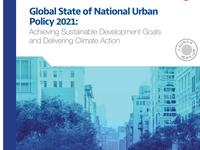
© OECD/ UN-Habitat/ Cities Alliance
|
|
OECD, UN-Habitat and Cities Alliance Launch Global State of National Urban Policy 2021 Report
The Global State of National Urban Policy (NUP) 2021 report was launched in June 2021 at a high-level online event jointly organised by the OECD, UN-Habitat, and Cities Alliance. The 2021 report reviews the NUPs of 162 countries around the world and assesses progress in key areas. It aims to assist national governments in advancing their NUP processes, especially by creating stronger links between the policies and urban-related global agendas (such as Agenda 2030 for Sustainable Development and the New Urban Agenda) and climate action.
|
| |
|
|
| |
|
|
|
|
|
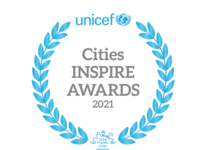
© UNICEF
|
|
Vote for the UNICEF Cities Inspire Awards 2021: Child-friendly Governance
You can now vote for your preferred entry in the Child Friendly Cities Inspire Awards category on Chid-friendly governance until the 14th of November 2021. The award is provided in seven categories: Child Participation, Child Friendly Local Services, Child Poverty Reduction and Social Protection, Safe, Lean Sustainable and Child Friendly Environments, Play, Leisure and Family Time and Child Friendly Governance. You can find the inspiring project videos via this link and vote for your favorite projects!
|
| |
|
|
| |
|
|
|
|
|
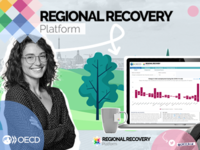
© OECD
|
|
Explore the OECD Regional Recovery Platform
The devastating health, economic and social impacts of the COVID-19 pandemic have been uneven across and within countries – and recovery from the crisis, so far, has also been uneven. Understanding the diverse dimensions of the recovery and developing place-based policies is essentail to support the recovery in all regions. The OECD Regional Recovery Platform contains internationally-comparable subnational data on the COVID-19 crisis and provides a compendium of policy solutions to support the recovery.
|
| |
|
|
| |
|
|
|
|
|
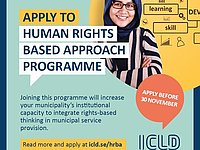
© ICLD
|
|
Apply Now for the ICLD Human Rights Based Approach Programme
The ICLD Human Rights Based Approach Programme aims at strengthening the municipalities’ capacity and contribute to ongoing but also to new change management processes designed to achieve socioeconomic development. The goal of the partnerships is also to strengthen the institutional capacity and the integration of a rights based thinking at local level and in the municipal service. The following countries are eligible for the programme: Albania, Bosnia and Herzegovina, Georgia, Kosovo, North Macedonia, Moldova, Montenegro, Serbia, Turkey, Ukraine. The programme period is 2022-2023. Apply no later then the 30 November 2021.
|
| |
|
|
| |
|
|
|
|
|
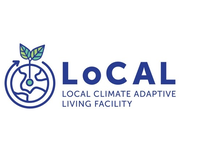
© UNCDF LoCAL
|
|
UNCDF and Burkina Faso Roll-out LoCAL for Locally Led Adaptation Action
Burkina Faso has signed an agreement with the UN Capital Development Fund to deploy the Local Climate Adaptive Living Facility (LoCAL) to advance the Sahelian country’s efforts to build resilience and adapt to climate change. Minister for the Environment, Green Economy and Climate Change Simeon Sawadogo and UNCDF Executive Secretary Preeti Sinha signed the agreement during a meeting at the annual global gathering for climate negotiations, COP26. LoCAL helps local government authorities in developing and least developed countries access the climate finance, capacity-building and technical support they need to respond and adapt to climate change.
|
| |
|
|
| |
|
|
|
|
|
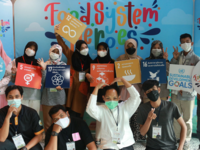
© UNDP Thailand
|
|
UNDP Accelerator Labs - Can Grassroots Innovations be the Answer?
The COVID-19 crisis has highlighted the critical role of local stakeholders more than ever before and has presented a significant opportunity to drive more engagement with local actors directly. In this time of widespread vulnerability, complexity and challenges innovations are essential for sustainable development and to build back forward. This is why the UNDP Accelerator Lab Thailand got engaged with local stakeholders and communities, that are constantly creating local innovations. The crisis accelerated innovations at an unprecedented rate and UNDP Thailand is listening and actively integrating those innovations into their country programmes to foster sustainable, resilient and inclusive development.
|
| |
|
|
| |
|
|
|
|
|
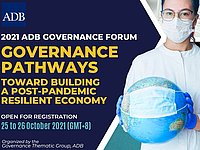
© ADB
|
|
ADB Governance Forum 2021: Governance Pathways Toward Building a Post-Pandemic Resilient Economy
The Asian Development Bank’s (ADB) Governance Thematic Group held the 2021 ADB Governance Forum on 25–26 October 2021 with the theme Governance pathways toward building a post-pandemic resilient economy. The Forum was dedicated to four core thematic areas on quality infrastructure investment (QII), state-owned enterprise reforms (SOEs), domestic resource mobilisation, and localising the Sustainable Development Goals (SDGs). The themes were presented within an integrated service delivery framework that will help to provide a governance and capacity development lens in developing countries’ efforts to reorient their priority reform initiatives under a post-pandemic environment. You can now access all presentations by following the link.
|
| |
|
|
| |
|
|
|
|
|

© EU Agency for Fundamental Rights (FRA)
|
|
How to Become a Human Rights City: A New Framework Launched
During the Fundamental Rights Forum 2021, the EU Agency for Fundamental Rights launched a new Framework for Human Rights Cities. The Framework aims to showcase what being a Human Rights City means and encourage more cities and local governments to make human rights an integral part of their work. The project was developed in cooperation with the City of Vienna, the City of Utrecht, the Raoul Wallenberg Institute, the Social Affairs Forum of Eurocities, the Committee of Social Inclusion, Participatory Democracy and Human Rights of the UCLG.
|
| |
|
|
| |
|
|
|
|
|
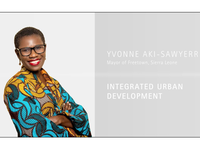
© Yvonne Aki-Sawyerr / Norman Foster Foundation
|
|
Yvonne Aki-Sawyerr on Her Urban Development Plan as Mayor of Freetown
In her inspiring masterclass on ''Integrated Urban Development'', Yvonne Aki-Sawyerr explains her integrated approach to urban development as the Mayor of Freetown Sierra Leone, called Transform Freetown, which includes revenue mobilisation and environmental management initiatives, such as ''Freetown the Treetown'’. A must see if you want to learn more about inclusive transformations!
|
| |
|
|
| |
|
|
|
|
|
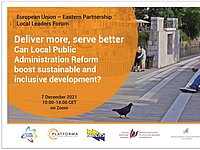
© NALAS
|
|
European Union - Eastern Partnership Local Leaders’ Forum Organised by NALAS
When: 7 December 2021
Where: Online
Apply by: Registration open
The event is organised by NALAS, in cooperation with PLATFORMA and the Council of European Municipalities and Regions (CEMR), the Latvian Association of Local and Regional Governments (LALRG) and the Association of Local Authorities in Lithuania (ALAL) and will focus on “Deliver more, serve better: Local Public Administration Reform as a booster for sustainable and inclusive development”. The Forum will open a multi-institutional dialogue on European Level with EU institutions, EU member states and EaP countries on the new perspectives for local public administration reform through the lenses of sustainable development that leaves no one and no space behind. Local leaders from the Eastern Partnership and the European Union countries will exchange, debate and inspire each other.
|
| |
|
|
| |
|
|
|
|
|
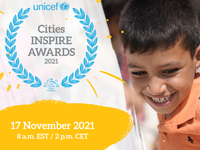
© UNICEF
|
|
UNICEF Child Friendly Cities and Local Governments Inspire Awards 2021
When: 17 November 2021, 02:00 pm CET
Where: Online
Apply by: Registration open
The UNICEF Inspire Awards celebrate the commitment of cities and communities to promote child rights. The award is provided in seven categories: Child Participation, Child Friendly Local Services, Child Poverty Reduction and Social Protection, Safe, Lean Sustainable and Child Friendly Environments, Play, Leisure and Family Time and Child Friendly Governance.
|
| |
|
|
| |
|
|
|
|
|
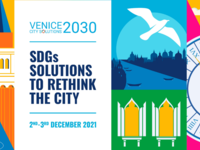
© AICCRE, UCLG, UNDP, UN-Habitat, UN SDG Action Campaign
|
|
Venice City Solutions 2030 - SDG Solutions to Rethink the City
When: 2 December - 3 December 2021
Where: Online
Apply by: Registration open
Venice City Solutions 2030 is a yearly event that focuses on how cities and local governments are contributing to make the Sustainable Development Goals a reality for all. In the fourth edition, AICCRE, UCLG, UNDP, UN-Habitat and the UN SDG Action Campaign want to gather innovative solutions that local governments and their partners are already experimenting with. This event will showcase how cities are getting inspired by the SDGs and how to inclusively engage citizens into local actions to leave no one behind. This year’s concept wants offer a platform to share what the partners are doing differently to use the SDGs as a tool to transform the city.
|
| |
|
|
| |
|
|
|
|
|
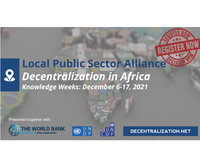
© The Local Public Sector Alliance
|
|
Decentralisation and Local Development in Sub-Saharan Africa
When: 6 December - 10 December 2021
Where: Online
Apply by: Registration open
The Local Public Sector Alliance—in collaboration with the World Bank Subnational Governance and Decentralisation Global Solutions Group, UNDP, UNCDF, DeLoG and a number of other global partners— will convene a series of knowledge sharing events on Decentralisation and Local Development in Africa, including a regional overview of decentralisation and localisation reforms in Africa. A panel discussion by experts from the World Bank, UNDP, and other regional experts on trends on decentralisation and localisation in Africa. And a final knowledge sharing event, which will provide an opportunity for scholars and practitioners to have an exchange on policy-relevant research on decentralisation and local development in Africa.
|
| |
|
|
| |
|
|
|
|
|
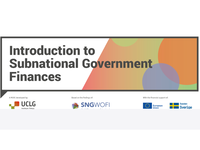
© UCLG
|
|
UCLG MOOC - Introduction to Subnational Government Finances
When: Self-Paced
Where: Online
Apply by: Registration open
|
| |
|
|
| |
|
|
|
|
|
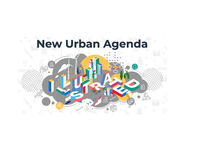
© New Urban Agenda
|
|
New Urban Agenda Crash Course
When: Self-Paced
Where: Online
Apply by: Registration open
|
| |
|
|
| |
|
|
|
|
|
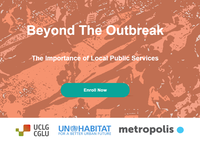
© UCLG/ UN-Habitat/ Metropolis
|
|
Beyond The Outbreak - The Importance of Local Public Services
When: Self-Paced
Where: Online
Apply by: Registration open
|
| |
|
|
| |
|
|
|
|
|
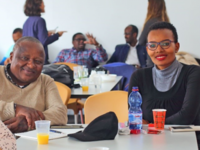
© The Hague Academy for Local Governance
|
|
Climate Adaptation and Local Resilience
When: 30 May 2022 - 10 June 2022
Where: The Hague
Apply by: 22 April 2022
|
| |
|
|
| |
|
|
|
|
|
Knowledge
|
|
|
Fragility ● Post-conflict Settings ● Migration
|
|
|
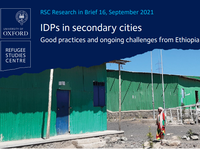
© Cities Alliance/ SDC/ University of Oxford
|
|
IDPs in Secondary Cities: The Case of Adama, Ethiopia
The case study of Adama, Ethiopia, highlights how local government can successfully respond to urban IDPs. Adama’s city government showed regional cooperation by receiving over 1,300 IDP families at very short notice and facilitating the building of houses, a school and crucial infrastructure for them. The location and administration of IDP and refugee settlements has strong impacts on development efforts and long-term integration. The need to support IDPs and integrate them in order to overcome social challenges such as religious difference and competition for employment, is just one of the many insights and recommendations the study provides. Best practices and lessons learned on mechanisms to support the social integration with local hosts can also be found in this paper.
Author: Evan Easton-Calabria, Delina Abadi and Gezahegn Gebremedhin
Publisher: Cities Alliance, SDC, University of Oxford
Publication Date: 2021
Copyright: Cities Alliance, SDC, University of Oxford
|
| |
|
|
| |
|
|
|
|
|
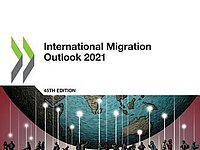
© OECD
|
|
International Migration Outlook 2021
The 2021 edition of International Migration Outlook analyses recent developments in migration movements and the labour market inclusion of immigrants in OECD countries. It also monitors recent policy changes in migration governance and integration in OECD countries. This edition includes two special chapters, one providing an in-depth analysis of the fiscal impact of migration in OECD countries since the mid 2000s and another on the causes and consequences of the residential segregation of immigrants. The Outlook also includes country notes and a detailed statistical annex.
Author: OECD
Publisher: OECD
Publication Date: 2021
Copyright: OECD
|
| |
|
|
| |
|
|
|
|
|
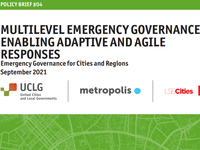
© UCLG/ Metropolis/ LSE Cities
|
|
Multilevel Emergency Governance: Enabling Adaptive and Agile Responses
The provision of equal and secure access to public services is a core responsibility of Local and Regional Governments (LRGs). Clearly defined functions and mandates as well as access to finance for LRGs are necessary to enable them to fulfil that responsibility especially in times of crisis. These objectives are at the centre of this report on Multilevel Emergency Governance and a prerequisite for sustainable solutions and reaching the SDGs. This policy brief by UCLG, Metropolis and LSE Cities demonstrates the institutional dimensions of rapid and radical action in response to complex global emergencies. It provides a widerange of concepts and frameworks as a preliminary resource to guide and foster further debates on multilevel governance and emergency coordination. Throughout the chapters you will find guiding emergency principles as well as remmondations for a coordinated, adaptive and agile emergency response.
Author: Philipp Rode and Rebecca Flynn
Publisher: UCLG, Metropolis, LSE Cities
Publication Date: 2021
Copyright: UCLG, Metropolis, LSE Cities
|
| |
|
|
| |
|
|
|
|
|
Fiscal Decentralisation ● Local Finance
|
|
|
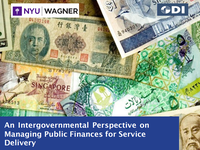
© NYU/ ODI
|
|
An Intergovernmental Perspective on Managing Public Finances for Service Delivery
This paper by the NYU and ODI provides insights on how sector finances are managed in diverse multilevel systems of government, and how these arrangements may affect service delivery. By looking across the relevant literature and applying an intergovernmental lens to health sector financing arrangements in four African countries with different intergovernmental systems - Ethiopia, Kenya, South Africa, and Uganda - this study demonstrates the value of more purposefully incorporating intergovernmental structures and dynamics into the analysis of sector financing and service delivery. It delivers important contributions and insights into inclusive and effective service delivery, especially in times of a global pandemic, climate change, and worsening global inequalities.
Author: Paul Smoke, NYU, ODI
Publisher: NYU and ODI
Publication Date: 2021
Copyright: NYU-Wagner, ODI, Bill and Melinda Gates Foundation
|
| |
|
|
| |
|
|
|
|
|
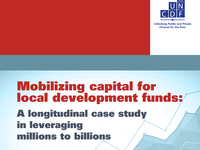
© UNCDF
|
|
Mobilizing Capital for Local Development Funds: A Longitudinal Case Study in Leveraging Millions to Billions
This longitude case study by UNCDF shows how the local development fund (LDF) generated billions of dollars for local social and economic development in the world’s underserved and underinvested regions. The publication consists of a synthesis overview and 10 country cases (Bangladesh, Benin, Bhutan, Guinea, Lesotho, Mali, Nepal, Solomon Islands, Tanzania and Uganda). These Funds significantly contributed to fiscal decentralisation and the expansion of local fiscal space and local fixed capital formation – two prerequisites for economic transformation. The paper gives insights into enabling enviroment for intergovernmental fiscal transfers to local governments and analyses the contributing factors in the model’s success.
Authors: David Jackson and Christel Alvergne
Publisher: UNCDF
Publication Date: 2021
Copyright: UNCDF
|
| |
|
|
| |
|
|
|
|
|
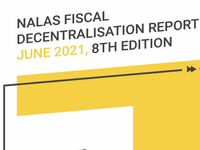
© NALAS
|
|
NALAS Fiscal Decentralisation Indicators Report
NALAS eight edition of the Fiscal Decentralisation report focuses in particular on the regulation, management and financing of decentralised social sector services in South-East Europe. The report provides a comparative overview followed by a detailed analysis of the local government responsibilities in education, social care and protection and public health in South-East Europe, how they are regulated, managed and financed for all South-East European economies. As the world continues to face the aftermath of COVID-19 and local governments lead recovery efforts, a special chapter is dedicated to the municipal response to COVID-19 in the social sector in South-East Europe. It shows what South-East European local governments have been doing to weather the crisis impact in education, social protection and care and public health. The report also gives an outlook on fiscal decentralisation tendencies in South-East Europe
Editors: Tony Levitas, Brown University and Elton Stafa, NALAS
Publisher: NALAS
Publication Date: 2021
Copyright: NALAS
|
| |
|
|
| |
|
|
|
|
|
2030 Agenda ● Localising the SDGs
|
|
|
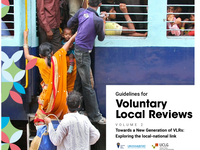
© UCLG/ UN-Habitat
|
|
Guidelines for Voluntary Local Reviews Volume 2 - Exploring the Local-National Link
UCLG and UN-Habitat have designed tools, methods and institutional opportunities to support local and regional governments in engaging with the global agendas and the localisation of these common goals. Volume 2 of the VLR Series, the Guidelines for Voluntary Local Reviews, provides an overview and analysis of how the linkage between national and local levels is playing out. VNRs and VLRs are inherently complimentary, but these Guidelines guide a way to merge them constructively. This Volume explores to what degree the local level, the localisation of the SDGs and the untapped potential of local action are acknowledged in national reviews.
Publisher: UCLG and UN-Habitat
Publication Date: 2021
Copyright: UCLG and UN-Habitat
|
| |
|
|
| |
|
|
|
|
|
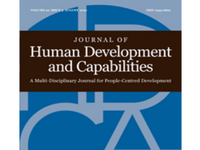
© Journal of Human Development and Capabilities, Routledge
|
|
A “Decade for Action” on SDG Localisation
This paper echoes the UN-General Secretary's call for a ''Decade of Action''. With local governments at the forefront of fighting the COVID-19 pandemic, the adequate assumption of responsibilities concerning service delivery by local and regional authorities has become more important than ever. This study highlights that the expansion of human well-being, in terms of capabilities, and the pursuit of sustainable human development and transformative resilience is inherently linked to multilevel governance mechanisms. All levels and sectors must engage with and commit to the aim of fostering sustainable development and social empowerment.
Author: Mario Biggeri
Publisher: Journal of Human Development and Capabilities, Routledge
Publication Date: 2021
Copyright: Journal of Human Development and Capabilities, Routledge
|
| |
|
|
| |
|
|
|
|
|

© Stockholm Environment Institute (SEI)
|
|
SDG Localisation Baseline: How Local-Level Actors are Driving Change and Advancing the Achievement of the 2030 Agenda
This paper by the Stockholm Environment Institute (SEI) wants to inform decisions regarding the response to the pandemic around the world. Thereby aiming at an inclusive and resilient plan to help actors reconstruct and improve their communities. This baseline report uncoveres the important challenges and opportunities for the local implementation of the SDGs that relate to the broader themes of advocacy, action, and monitoring. In addition, this effort builds on the New Urban Agenda, which functions as an accelerator of the SDGs, being emphatic about making cities and human settlements inclusive, safe, resilient, and sustainable. The report raises awareness of the need for and importance of generating localised actions at the local level.
Authors: Orozco, E. H., Cárdenas, M., Lobos Alva, I., Guerra, A., Gerger Swartling, Å., Betancur, J., Joshi, S., Melati, K., Otieno Opiyo, R., Kim, D., Pearson, L., Esquivel, N. N., Kabue Njoroge, G. and Ek, F.
Publisher: Stockholm Environment Institute (SEI)
Publication Date: 2021
Copyright: Stockholm Environment Institute (SEI)
|
| |
|
|
| |
|
|
|
|
|
Urban and Territorial Governance
|
|
|
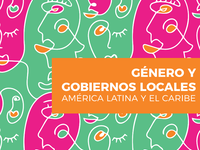
© CIPDH – UNESCO
|
|
Gender and Local Governments
With this publication the International Centre for the Advancement of Human Rights (CIPDH-UNESCO) provides an insightful digital guide on Gender and Local Governments. It will serve as a resource to inform local governments in Latin America and the Caribbean. The information and policy implications addressed in this paper range from discriminatory issues faced by women in Latin America and the Caribbean, along with actions and policies aimed at achieving gender equity and inclusion. There are also case studies documenting initiatives that have been already implemented by local governments to address these issues including results and lessons learned.
Only available in Spanish!
Authors: María del Carmen Feijoó, María Eugenia Sozzani y Carolina Tellería
Publisher: CIPDH – UNESCO
Publication Date: 2021
Copyright: CIPDH – UNESCO
|
| |
|
|
| |
|
|
|
|
|
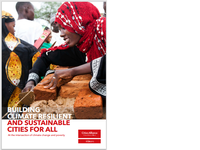
© Cities Alliance
|
|
Building Climate Resilient and Sustainable Cities for All
People living in informal settlements are disproportionately affected by the impacts of climate change due to their exposure and physical, social, and economic vulnerability. Addressing urban inequality and informality musth therefore start by building city resilience, unlocking mitigation potential, and making urbanisation sustainable for all. This report sets out how climate change and informality are intertwined and cause of urban poverty. Cities Alliance' approaches and projects described here also provide key evidence of the challenges and opportunities of tackling climate change and bolstering adaptation where it matters most: in urban informal settlements in rapidly urbanising countries.
Author: Cities Alliance
Publisher: Cities Alliance
Publication Date: 2021
Copyright: Cities Alliance
|
| |
|
|
| |
|
|
|
|
|
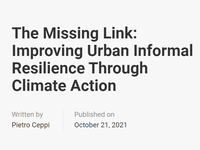
© Urban Resilience Hub, UN-Habitat
|
|
The Missing Link: Improving Urban Informal Resilience Through Climate Action
Resilience is often defined as the ability of “individuals, communities and states and their institutions to absorb and recover from shocks, whilst positively adapting and transforming their structures and means for living in the face of long-term changes and uncertainty'' (OECD, 2013). Resilience is usually associated with the city. Yet the places where communities live, work and take care of each other do not end at a city’s borders. Traditional city boundaries are becoming less meaningful and coordination between diverse areas and levels of government at the metropolitan level is more essential than ever to ensure sustainable places, services and infrastructure. The COVID-19 pandemic has demonstrated the need to rethink current urban governance systems. This paper is pledging for concerted efforts from the international community and by governments in line with funds in order to build more sustainable, resilient and inclusive cities and building stronger urban-rural linkages.
Author: Pietro Ceppi
Publisher: Urban Resilience Hub, UN-Habitat
Publication Date: 2021
Copyright: Urban Resilience Hub, UN-Habitat
|
| |
|
|
| |
|
|
|
|
| |

|
|
|
| |
|
|
| |
For access to even more inspiring publications on
1. DLG in Contexts of Fragility, Migration and Post-Conflict Settings,
2. Fiscal Decentralisation and Local Finance,
3. Localising the 2030 Agenda or
4. Urban and Territorial Governance
make sure to visit the regularly updated "Knowledge Section" of our DeLoG Website!
|
|
|


































